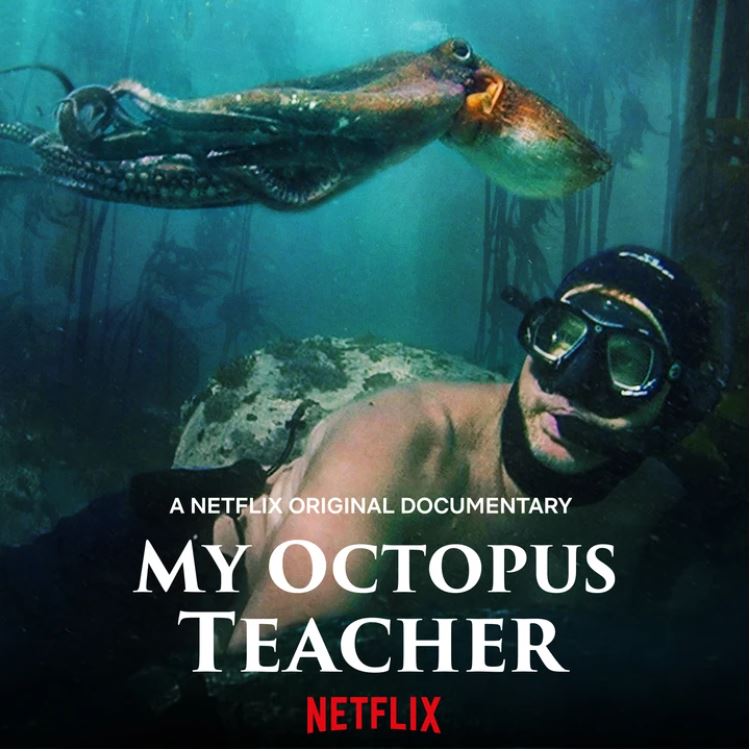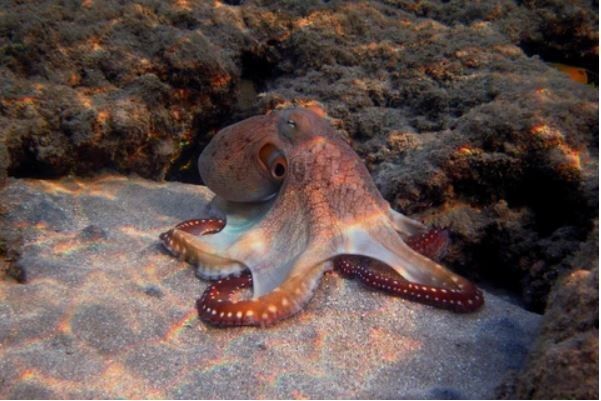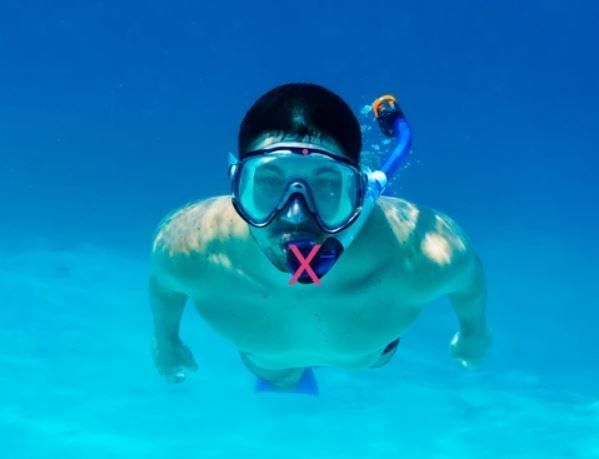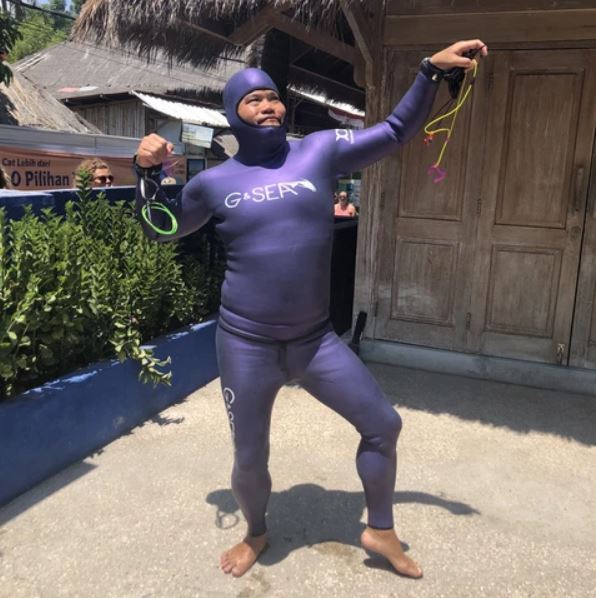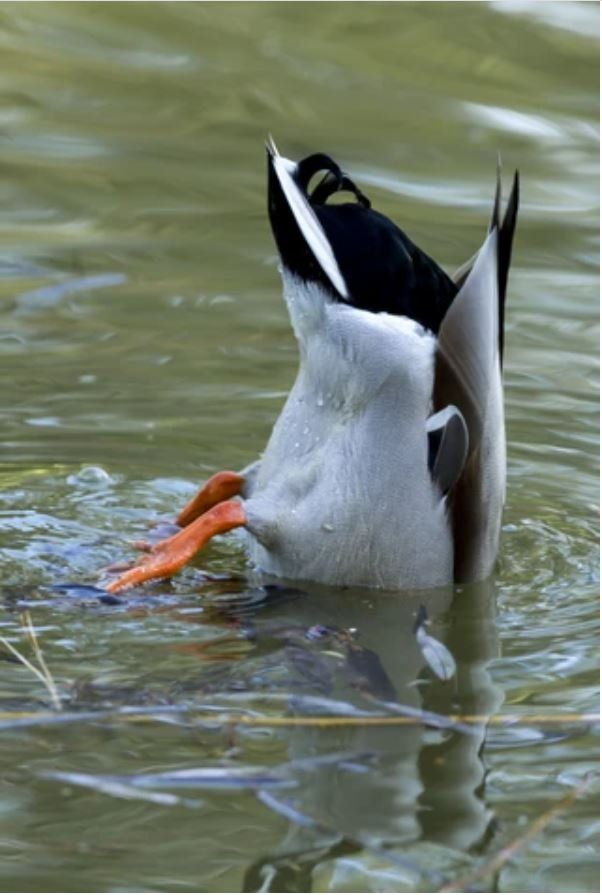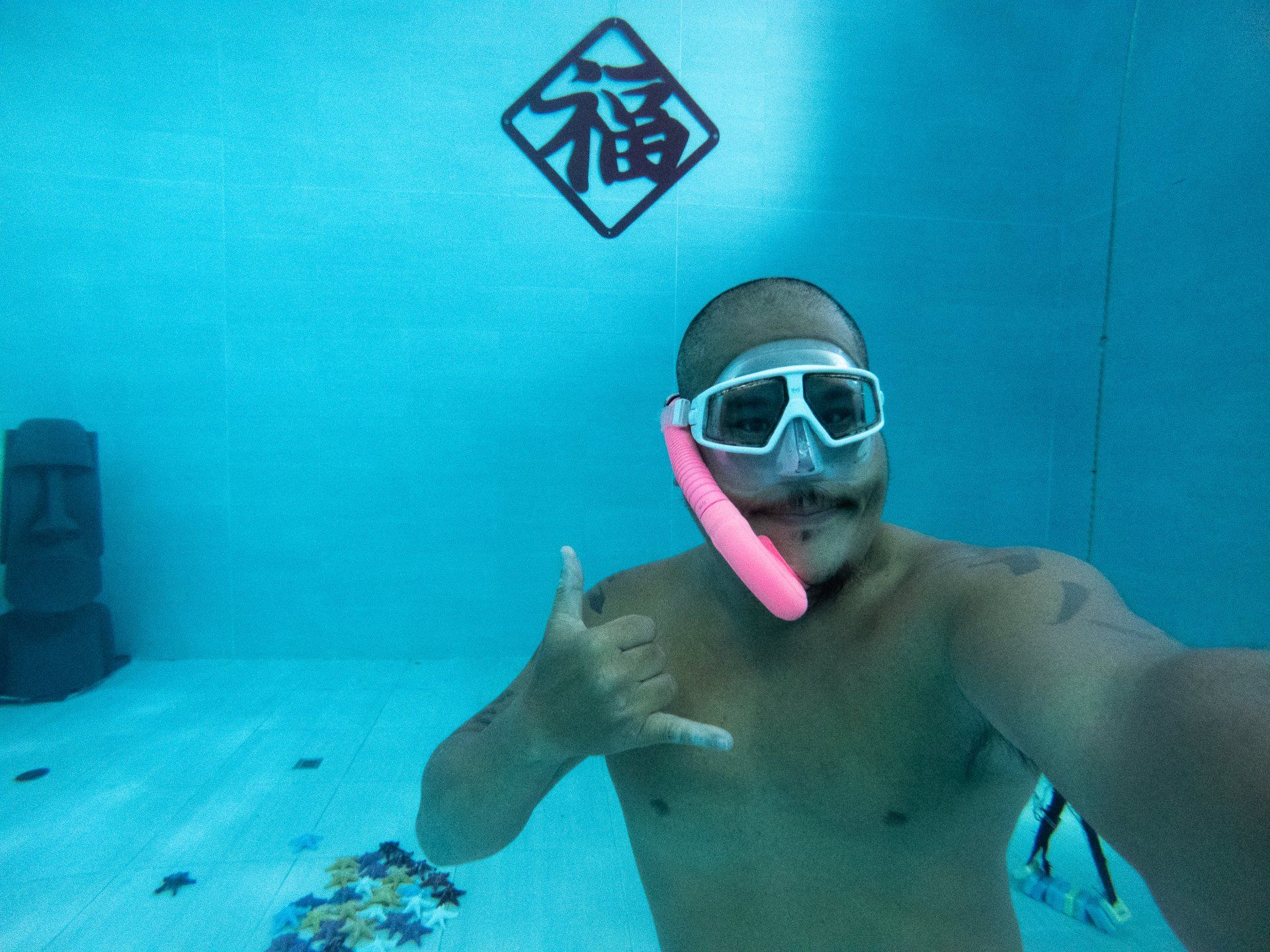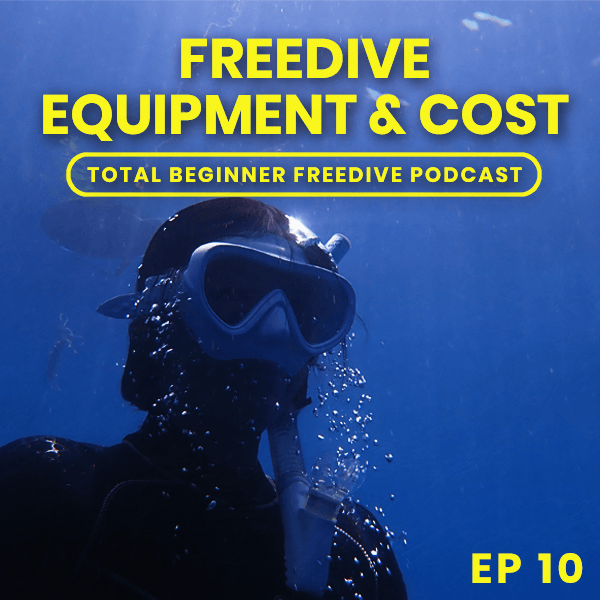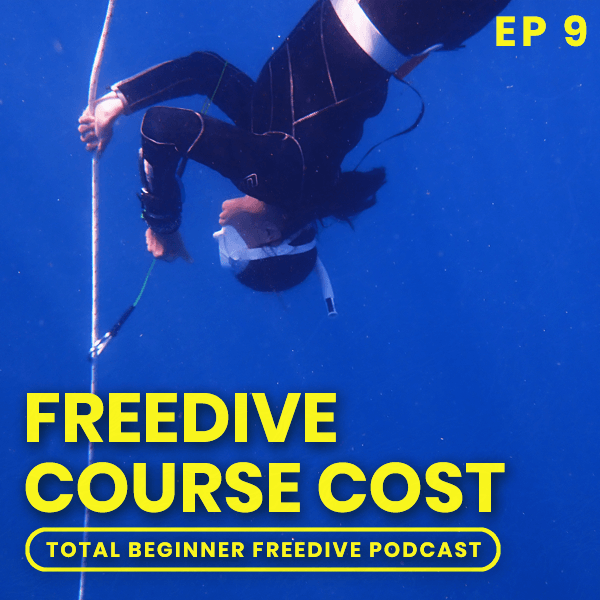Raymond Ko • May 15, 2021
My Octopus Teacher 2021: Lessons in Freediving Safely For the Beginner (中英版本)
QUICK PLUG - if you are a total beginner freediver please follow my socials (below) as I will be putting out content for the TOTAL BEGINNER FREEDIVER in the coming months.
中文版在下方 (CHINESE VERSION BELOW)
Netflix has done it again, more great content with the new documentary My Octopus Teacher. (It's also just been nominated for an Oscar)
My Octopus Teacher - A Story about Love, Violence, Tragedy, Life, Revitalization and Mother Nature
And I’m a total sucker for stories about people deepening their connection with the ocean leading to caring more about the ocean and everything in it. The ocean needs more ambassadors advocating for it, that’s for sure.
But I’m just going to go out and say it: Craig (main character) seemed to be an untrained freediver and what I saw in the documentary put himself in grave risk of dying, risks that could be EASILY mitigated with the knowledge and the skills you learn from a freedive course.
You never hear about freediving in mainstream media, until someone dies from freediving and that’s unfortunate as it can be a relatively safe activity when safety precautions are observed.
And those dying from freediving or breath-holding underwater are often like people like Craig. Very comfortable in the water, fit, athletic etc etc. What could happen, right?
I am reluctant to put out any content out there which deals with freediving safety as I don’t want anyone to consume the content and think they know everything about freediving safely and start doing it without any formal training. Do not take any of the content below as advice on freediving, let it serve as a WARNING and my ONLY advice is to take a freedive course.
Learning freediving cannot done through random Youtube videos and blog posts as what you need to learn all connects in a very deliberate order and as you progress, you build upon skills and knowledge, all whilst being checked and corrected by a trained instructor.
The bottom line is what he is doing is risky. It's one thing to go into freediving and doing things outside of safety protocols and knowing and accepting that risk, its another thing to NOT know the risks you are taking at all.
FREEDIVING ALONE - NEVER DIVE ALONE
This is the number one rule of freediving and Craig was often breaking this rule. The potential risks on extended breath-hold underwater are dramatically higher than just snorkeling on the surface and not doing any breath-holding.
The biggest risk in freediving is a blackout, which is when your oxygen levels get so low that you lose consciousness.
If you experience a blackout and don’t have a partner there to help you, there is an almost 100% chance you will die. The only tiny chance of survival is if you float back to the surface and miraculously end up floating on your back, but only if you are properly weighted and your snorkel is in the proper position, but more on that below.
As beautiful as the ocean is, there is always danger lurking below whether it's the animal life, powerful waves and currents or any acute medical occurrences.
You need a trained buddy to revive you, and also to recognize the signs of hypoxia or oncoming blackout.
SNORKEL IN THE MOUTH
Snorkel in Your Mouth - As useless as the "G" in lasagna and as dangerous as a space shuttle launch with corrosive O-rings.
Craig would often leave his snorkel in his mouth while diving. It serves absolutely no one to have the snorkel in their mouth while breath-hold diving.
The human body is a wonderfully elegant piece of work. Your body knows when it's in the water, and when it blacks out in water, it closes off your airway so that water does not flood your lungs, which makes reviving the diver more of a challenge. What your body does is involuntary spasms of your vocal fold when you are blacked out to prevent flooding of water into your lungs. This is called laryngospasm, and the snorkel in your mouth leaves your mouth open, preventing this life-saving maneuver from happening.
WEAR A WETSUIT
A wetsuit protects you from the elements and makes me look like Barney
Craig went diving with no wetsuit in what he said was 7-8° C. Human bodies consume more oxygen in the cold and one of the skills taught in a freediving course is how to consume less oxygen. This only accelerates the diver into a possible state of hypoxia, and closer to a blackout, which is the least ideal situation in freediving.
Not to mention being in ice-cold waters increases risk of pulling soft tissue, whether that be a pulling his hamstring, or experiencing barotrauma (squeeze) which is the tearing of soft tissue under hydrostatic pressure which can be either the lungs, trachea or sinuses.
I can feel his desire to have as little of a barrier between him and the environment for a deeper connection. However, divers need to understand that not wearing a wetsuit increases your risks and should act accordingly.
RECOVERY BREATHS
In a freedive course, you learn recovery breathing for when you re-surface from a dive or a breath-hold. This helps replenish oxygen in your blood as quickly as possible as you fight hypoxia. Recovery breaths prevent blackouts; its that simple.
In the documentary, I did not see much of recovery breaths. And that only increases the chance of a blackout. You can still blackout several seconds after surfacing. And being not properly weighted (see below) he’ll just sink from the surface to the bottom.
NOT PROPERLY WEIGHTED - IN FACT OVERWEIGHTED
From a visual check on their weight belts, it looked like Craig was wearing about 5kgs of weights and his son even more, 7-8 kgs. That is way too much. I wear 2kgs in a 3mm wetsuit (you need more weight with a wetsuit as the neoprene is quite buoyant). I don't wear any weight while diving without a wetsuit.
You can tell they were overweighted as they would start sinking as soon as they dipped their head below the surface. What goes down also needs to come back up (of course you could always drop the weight). Thus getting that easy drop below the surface will require one to expend more energy on the way up at a point when you are most hypoxic, and that only increases your chance of a disastrous outcome.
A large majority of blackouts occur at 0 to 10 meters below the surface because of the drastic change in hydrostatic pressure causing the largest drop in oxygen available to the body inducing a blackout. Because of this, you want to be weighted so that you will float up from 10m and above.
Being overweighted and blacking out makes a rescue more difficult with a buddy, trained or untrained.
Just to remain on the surface with that much weight would require a lot of effort. If you are properly weighted you should easily stay afloat on the surface without exerting much energy.
There are some legitimate reasons to be overweight, however, for someone who is untrained at freediving, it's just too dangerous.
DUCK DIVE: NEEDS TO BE LEARNED
Duck diving is not just for surfers or ducks
I remember when I used to snorkel, and before learning freediving, just getting a few meters below the surface was a serious struggle as fighting positive buoyancy at the surface can be quite hard for the untrained. That’s where the duck dive comes in.
I am only guessing here, but I believe the reason why Craig was overweighted is to make it easier to fight the positive buoyancy on the surface. With an efficient duck dive, one can get to 2-3 meters pretty easily without exerting much effort just from an efficient duck dive. Then Craig would not need to wear so much weight.
CONCLUSION
The point I’d really like to get across to those who are not trained divers, no matter how comfortable and proficient you are in the water, like Craig, unless you are a trained freediver, you will make errors which will increase that could result in death.
The only advice I will give is to take a freedive course, not because I am a freedive instructor, but because I want to prevent unnecessary deaths and for freediving to continue to be the fastest growing water sport in the world and not hampered by mainstream media of people dying “freediving”.
Buuuuuuuuuut, if you are in the Las Vegas area, I teach freediving courses here until October/November 2020 and then I will be moving to Southern Taiwan and teaching from there. To read more about what a freedive course from me looks like, read here
And if you are a total beginner freediver, then please follow my socials below, I will be putting out extensive content tailored for THE TOTAL BEGINNER FREEDIVER who knows almost nothing about the sport.
如果你從來沒有學過自由潛水的話,請追縱我以下的社交網站,我很快就會把「完全新手自潛手冊」發佈出來囉。
NETFLIX再次做的很好,把更多的好東西放在平台上,新的紀錄片《我的章魚老師》新鮮出爐。
我很喜歡那種關於人類與海洋建立關係,然後更關注海洋和其中的生物。美麗的海洋需要更多的使者守護她,這個是肯定的。
但是我準備要說,克雷格(主角)顯然是沒有經過訓練的自潛者,我在紀錄片中看到他面臨致命的危機,而這些危險可以透過從自由潛水課中學到的知識和技能輕鬆減輕。
您不常會在主流媒體上聽說自由潛水這個活動,直到有人死亡,這個不幸,因為如果遵守安全,做好預防措施,這個算是非常安全的活動。
那些因為自由潛水或者是水底憋氣而死亡的人經常像克雷格一樣。 在水中非常自信,健康,身體強壯等,這樣可以發生什麼事情呢?
我不願意發佈任何涉及自由潛水安全的內容,因為我不希望任何人讀完這篇文章,就認為他們已經完全的理解自由潛水的所有安全知識,並且在沒有任何正式訓練以下就進行自由潛水。請勿將以下任何內容作為關於自由潛水的建議,而是應該把以下看為一種警告,我唯一給大家的建議是參加自由潛水課程。
要學好自由潛水,絕不能只看YOUTUBE影片,或是只看部落客的文章。因為您所需要學習的所有技巧,它們都非常精密的順序進行,並且隨著您的進步,您的技能和知識的增長,而所有這些都需要經過受訓的教練進行檢查跟糾正。
安全底線在於他在螢幕前做的充滿風險。 在安全規程以外進行自由潛水並接受這種風險是一回事,但完全不知道自己正在承擔的風險又是另一回事。
獨自潛水-絕不獨潛
這是自由潛水的第一法則,克雷格經常違反這個。 長時間在水下憋氣的潛在風險遠遠高於僅浮潛在水面而不進行任何憋氣的風險。
自潛的最高風險是昏迷,就是因缺氧而發生的意識喪失。
如果你遇到昏迷的情況也沒有潛伴協助你,你有十成機會喪命,唯一超微生存的機會是,如果您浮到水面並奇蹟般漂浮在您的背上,但前提是你適當地配重並且呼吸管在適當的位置,下面會有更詳細的解說。
雖然海洋美麗,在水底下必有一定的危險,不論是海洋生物、強大的海浪或是暗流,還有緊急的醫療事故。
您需要訓練有素的伙伴來恢復你,並認識到缺氧或即將發生的昏迷跡象。
呼吸管在口裡
在您的口中的呼吸管-像千層麵中的「G」沒用,像在太空穿梭機發射時O形環壞掉一樣危險。
克雷格經常在潛水的時候,把呼吸管留在口裡。其實在憋氣的時候,把它放在口中是完全沒有功用的。
人體是一個美妙的作為,你的身體知道什麼時候在水底下,什麼時候在水底下昏迷,它會把你的氣管關掉,不讓水進入你的肺部,否則要復甦一個潛者需要更大的力氣。當你在水底下昏迷的時候,你的身體會不自主地抽動你的聲帶來防止水湧入你的肺部。
這個叫喉痙攣,如果呼吸管還在你口裡而讓你的口腔呈打開的狀態,這個會讓復甦的過程更難進行。
穿上防寒衣
防寒衣可以保溫及保護身體,也讓我像恐龍仔班尼
在攝氏7-8度,克雷格在沒有穿防寒衣的情況下進行自由潛水。人體在寒冷的溫度下會消耗更多氧氣,而在自潛課中,教授學生其中必需的技巧是,如何少消耗氧氣。否則,這個情況只會讓潛者加快進入缺氧狀態,加快昏迷,是自潛最壞的情況。
更不用說在冰冷的水中,軟組織的損傷機會提高,拉傷膕旁肌群或是壓力性損傷,這是在水壓下軟組織的撕裂,可以發生在肺部,氣管或鼻竇。
我感覺到他渴望與大自然之間以最少的隔膜連繫。但是,潛者需要理解沒有穿上防寒衣會增加風險,務必好好的準備每次的自由潛水活動。
恢復呼吸
在自潛課中,當你回升到水面,或者是完成一個憋氣後,學習用到恢復呼吸。它會幫助潛者盡快補充血液裡的氧氣,以免缺氧發生。恢復呼吸可以預防昏迷,道理很簡單。
在紀錄片中,我沒有看到他做恢復呼吸。這個只會增加昏迷的機會。你回升到水面以後,還有可能會昏迷。而且,沒有好好的配重(看下部分),他也會從水面沉到底部。
沒有適當配重-其實,過分配重
只是用看的,克雷格他的配重帶大概有5公斤,他的兒子大概7-8公斤。這個真的太多了,我一般穿3毫米的防寒衣的時候,會帶2公斤(因為防寒衣物料帶浮力,一般需要多一點重量)。如果不穿防寒衣的話,我是不會配任何重量的。
你可以看得出來,當他們的頭在水面下,身體開始沉下去,表示說他們已經過份配重了。沉得下去也要浮上來。(當然你可以把重量摔掉)輕易下沉到水底下也就是說潛者要花更多的力氣回升到水面,當你差不多缺氧的時候,這種情況更會讓你遇到災難性的結果。
大部分的昏迷會發生在水底下0到10米之間,因為明顯的水壓改變,讓體內氧氣大量下降造成昏迷。因為這個原因,你需要被適當地配重,讓你可以從10米下浮到水面。
當發生過份配重和昏迷,無論你的潛伴是已受訓練或是沒受過訓練,也會讓拯救更困難。
在過份配重的情況下,僅僅停留在水面上就需要大量的力氣。 如果適當地配重,您應該輕鬆地漂浮在表面上而不會消耗太多的力氣。
雖然有一些合理的原因而過份配重,但是,對於沒有經過自由潛水訓練的人來說,這樣做太危險了。
鴨式下潛:需要好好學習
不只有沖浪者或鴨子才做鴨式下潛
我記得我做浮潛的時候,還有在學習自由潛水之前,只是要下潛到水底幾米已經是一個非常困難的事情,因為對於沒有受訓的潛者,從水面要克服正浮力也蠻困難的。所以,鴨式下潛成為必要學習的項目。
我只是猜測,但是我相信克雷格過份配重的原因是要克服水面的正浮力。如果加上有效的鴨式潛水,他可以輕易地、不費力氣的下潛到2-3米。克雷格就不用配帶那麼多重量了。
總結
我很希望跟從沒受過訓練的潛者說,無論你在水裡有多舒適或自信,如克雷格一樣,除非你是個受過訓練的潛者,你也會犯一些可以致命的錯誤。
我唯一的忠告是,去上自由潛水課,不是因為我是個自潛教練,而是因為我想阻止不必要的生命危險,還有希望自由潛水繼續成為全球最快速增長的水上活動,不受主流媒體渲染成致命的「自由潛水」。
不過,如果你在美國拉斯維加斯地區,我會在這邊教授自潛課程到2020年的10/11月,然後我會搬到南台灣並在那邊繼續教學。想了解我的自潛課程初班,請按這裡:
還有,如果你是完全新手自潛者,可以追縱下面,我會把更多全面的文章,為完全初學自潛者發放出來,幫助那些從零開始的學生。
--------------------------------------------------------
連絡及社交平台
--------------------------------------------------------

